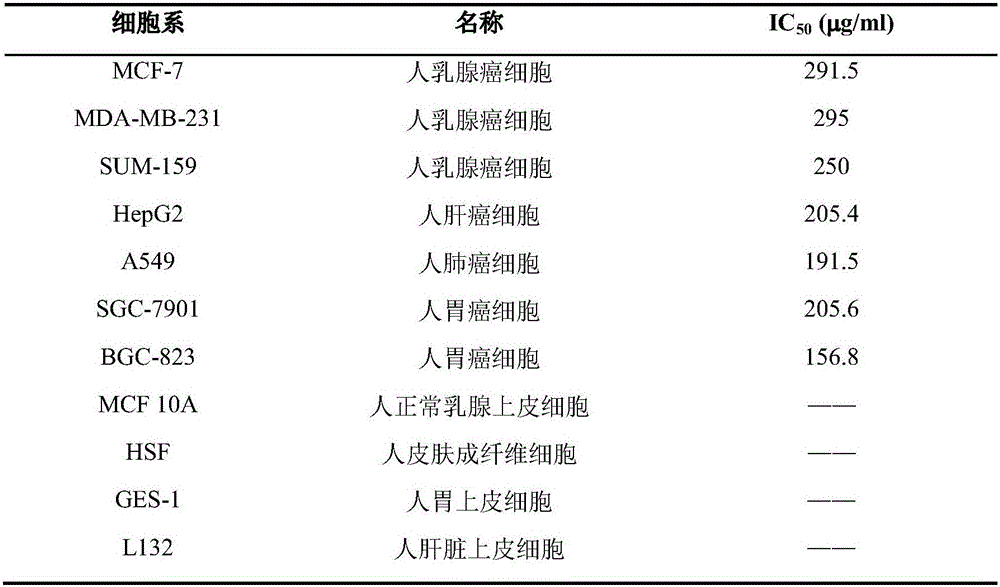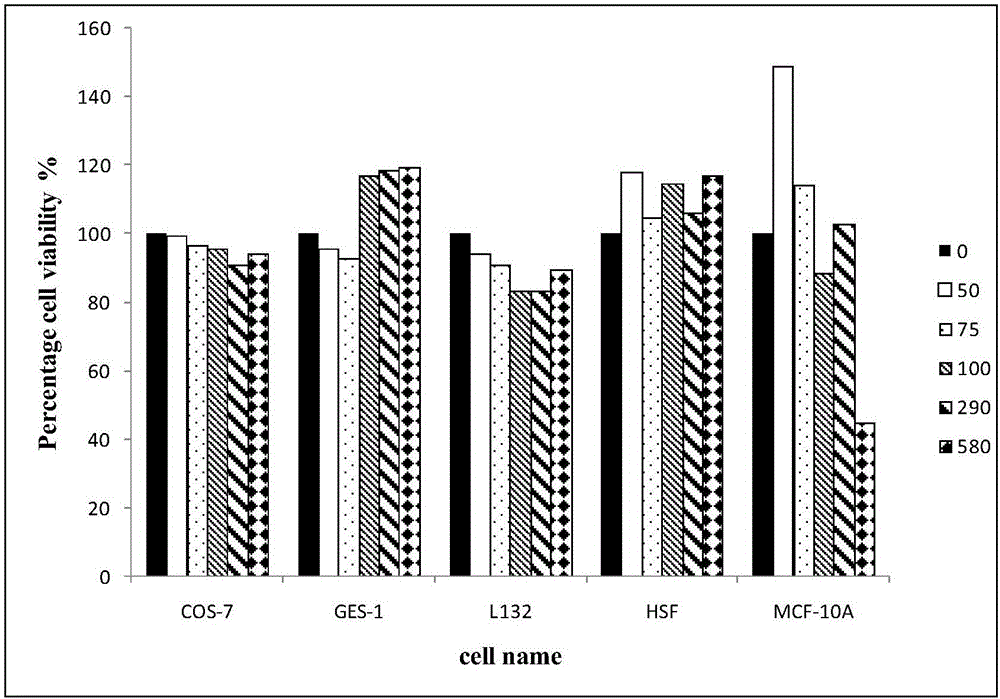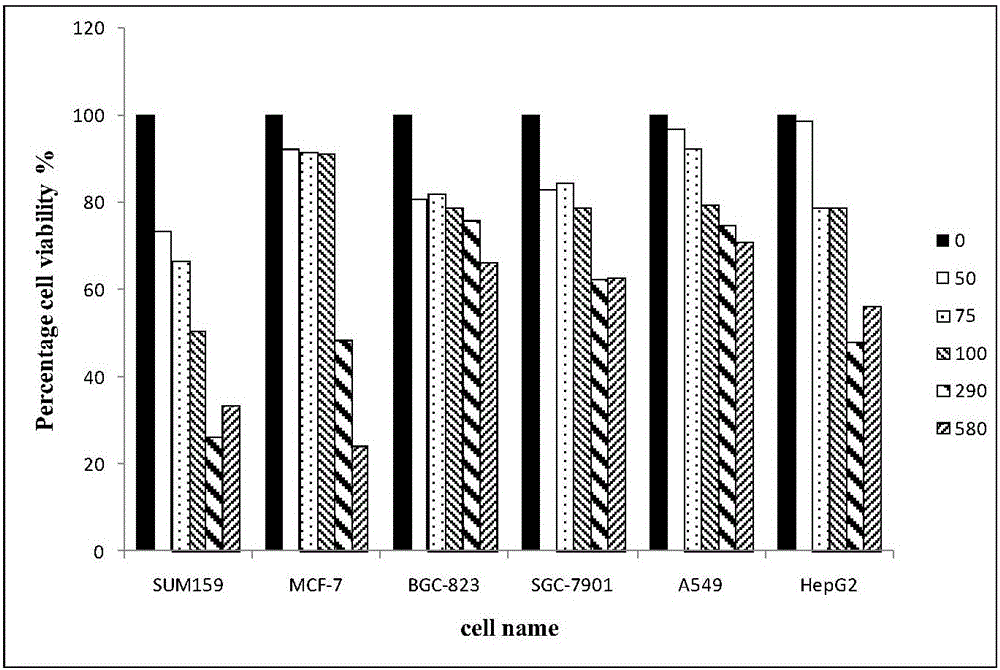New chemical synthesis galactophore breast cancer medicine piperinic acid potassium
A technology of potassium piperine, breast cancer, applied in the screening of compounds, active ingredients of heterocyclic compounds, organic chemistry, etc.
- Summary
- Abstract
- Description
- Claims
- Application Information
AI Technical Summary
Problems solved by technology
Method used
Image
Examples
Embodiment 1
[0048] Embodiment 1: the selective inhibitory effect of potassium piperate on cancer cells
[0049] Normal cells (GES-1, HSF, L132, COS-7) and cancer cells (MCF- 7. SUM159, A549, BGC-823, SGC-7901, HepG2) 48h, then add 10μl CCK-8 to each well, 37℃, 5% CO 2 Treat the cells for 90 minutes, measure the light absorption value at the wavelength of OD=450nm on the microplate reader, and use the formula in the Excel table: cell activity=(light absorption value of the drug-dosed group-negative control group light absorption value) / (add water The light absorption value of the group-the light absorption value of the negative control group) to obtain the cell activity ratio at different GBK concentrations, and three independent experiments were carried out. It was found that as the concentration of GBK increased from 0 to 400 μg / ml, the cell activity of normal cells was not inhibited or was slightly inhibited during the process of increasing the concentration, while the activity of canc...
Embodiment 2
[0050] Example 2: Potassium piperate selectively inhibits breast cancer cell cycle progression
[0051] The inhibitory effect of GBK on cancer cells has been proved by experiments that GBK selectively inhibits the proliferation of cancer cells, especially breast cancer cells, but basically has no effect on the proliferation of normal cells. Experimental results show that GBK can specifically prevent the G1 / S transition of breast cancer cell MCF-7, but has no effect on the G1 / S transition of other cancer cells (SGC-7901, HepG2). Breast cancer cells were treated with GBK at concentrations of 0 μg / ml, 145 μg / ml, 290 μg / ml, and 580 μg / ml for 48 hours, and the cells were collected after 48 hours, stained with PI in the dark, and detected. As the GBK concentration increased from 0 to 580 μg / ml, breast cancer cells in the G1 phase of the MCF-7 cell line increased, and cells in the S phase decreased significantly (see Figure 4 ).
Embodiment 3
[0052] Example 3: Effects of Potassium Piperate on Related Signaling Pathways after Treatment of Breast Cancer Cells
[0053] Through the human cell genome-wide transcriptional microarray (global transcriptional microarray) technology, the differential expression of breast cancer cells (MCF-7) and gastric cancer cells (SGC-7901) treated with potassium piperonate compared with the corresponding tumor cell lines without treatment was screened out. Cellular pathways affected by GBK were screened (see Figure 5 ). It can be seen from the histogram that the genes whose expression levels change in MCF-7 cells are mainly related to the process of tumor development such as cell cycle, DNA replication and cell apoptosis; most of the genes that change in SGC-7901 cells are related to Organoid responses, cell migration, are associated with diseases such as hypertrophic cardiomyopathy.
PUM
 Login to View More
Login to View More Abstract
Description
Claims
Application Information
 Login to View More
Login to View More - R&D
- Intellectual Property
- Life Sciences
- Materials
- Tech Scout
- Unparalleled Data Quality
- Higher Quality Content
- 60% Fewer Hallucinations
Browse by: Latest US Patents, China's latest patents, Technical Efficacy Thesaurus, Application Domain, Technology Topic, Popular Technical Reports.
© 2025 PatSnap. All rights reserved.Legal|Privacy policy|Modern Slavery Act Transparency Statement|Sitemap|About US| Contact US: help@patsnap.com



